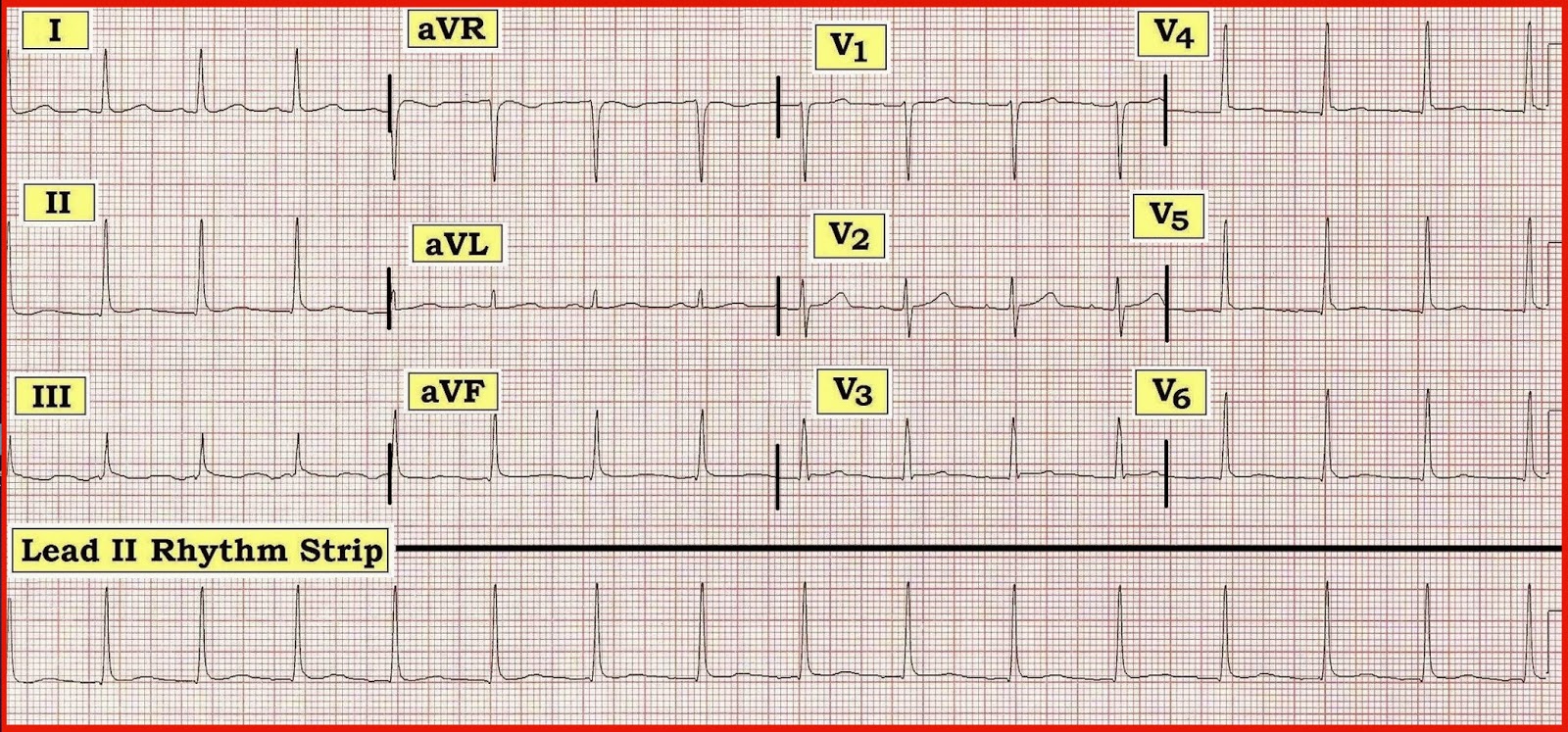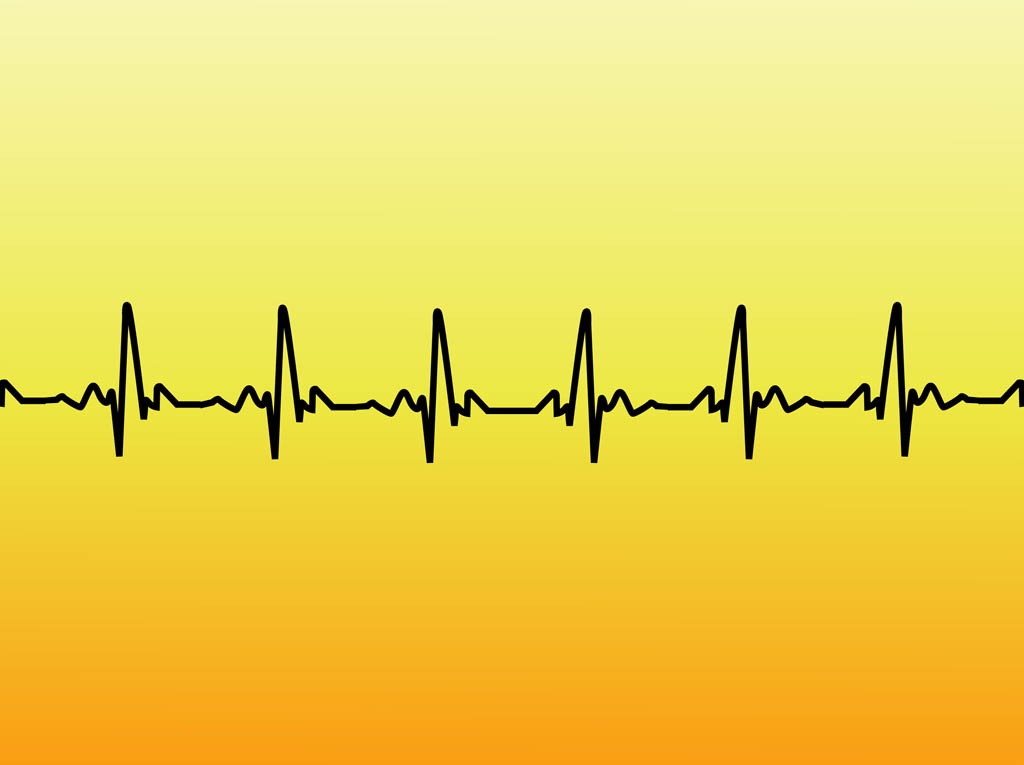Alright, let's dive right into it. You've probably heard the term "borderline ECG" thrown around, especially if you've ever been to a doctor's office or had a routine health checkup. But what exactly does it mean when your ECG comes back as borderline? Does it mean you're on the brink of a heart attack or is it just a harmless blip on the radar? Let's break it down in simple terms because understanding this can make a huge difference in your health journey.
Let's face it, folks. Health-related terms can get super confusing, especially when they're laced with medical jargon. But don't worry, we're here to demystify the whole thing. A borderline ECG result doesn't necessarily mean disaster—it's more like a warning sign. It's your body's way of saying, "Hey, pay attention!" So, whether you're a fitness enthusiast or someone who's just trying to keep up with their health, this is something worth knowing.
Now, before we get too deep into the nitty-gritty, let's talk about why this matters. Heart health is no joke. In fact, heart disease is one of the leading causes of death worldwide. So, when your ECG shows something "borderline," it's like a heads-up to take action. Whether it's tweaking your lifestyle, consulting a specialist, or simply being more mindful of your health, this info can be a game-changer.
Read also:Daily Mail Us Showbiz Your Ultimate Source For Entertainment News
What Exactly Is a Borderline ECG?
So, what's the deal with a borderline ECG? Let's start by understanding what an ECG actually is. An electrocardiogram (ECG or EKG) is a test that measures the electrical activity of your heart. It's like a snapshot of your ticker's performance. Now, when your results come back as "borderline," it means the readings are slightly abnormal but not enough to raise major red flags. It's like being in the gray area—neither completely normal nor completely abnormal.
Think of it like this: your ECG results are like a traffic light. A green light means everything's good to go, a red light means stop and seek help immediately, and a yellow light? That's your borderline result. It's a sign to slow down and investigate further. And trust me, you don't want to ignore that yellow light.
Here are some common factors that might lead to a borderline ECG:
- Minor irregularities in heart rhythm
- Changes in heart rate during the test
- Minor deviations in electrical patterns
- Stress or anxiety during the test
Why Does a Borderline ECG Matter?
Alright, here's the thing. A borderline ECG might not sound like a big deal, but it could be hinting at underlying issues. It's like your heart's way of whispering, "Hey, something's not quite right." Ignoring this whisper can turn into a shout later on, and no one wants that. So, why does it matter? Let me break it down for you.
First off, your heart is one of the most important organs in your body. It keeps the blood pumping, delivering oxygen and nutrients to every single cell. When your ECG shows borderline results, it could indicate potential issues like arrhythmia, ischemia, or even early signs of heart disease. And hey, catching these things early can save your life.
Plus, let's not forget about the emotional side of things. Knowing that something's "off" can be stressful, but it can also motivate you to take charge of your health. It's like that gym membership you've been meaning to use—sometimes you need a little push to get started.
Read also:Sotwee Fantasy Your Ultimate Guide To Unleashing The Magic
Common Causes of Borderline ECG Results
Now, let's talk about the common culprits behind borderline ECG results. Sometimes, it's not even something serious—it could just be a temporary glitch. Here are a few factors that might contribute:
- Stress and Anxiety: Yep, your mental state can affect your heart's electrical activity. Ever felt your heart racing during a stressful moment? That's why staying calm during the test is crucial.
- Physical Activity: If you just finished a workout before the test, your heart might still be pumping hard, leading to borderline results.
- Medications: Certain drugs can alter your heart's rhythm, so make sure to inform your doctor about any meds you're taking.
- Electrolyte Imbalance: Low potassium or magnesium levels can mess with your ECG readings. It's like your heart's batteries are running low.
Understanding the Impact of Borderline ECG
So, what happens after you get a borderline ECG result? Does it mean you're doomed? Absolutely not. But it does mean you need to take a closer look at your overall health. Think of it as a wake-up call rather than a death sentence. Here's how it can impact your life:
For starters, it might prompt you to make some lifestyle changes. Maybe you'll start eating healthier, exercising more, or cutting back on that extra cup of coffee. These small tweaks can add up to big improvements in your heart health. And hey, who doesn't want to feel better and live longer?
Additionally, a borderline ECG might lead to further testing. Your doctor might recommend an echocardiogram, stress test, or even a Holter monitor to get a clearer picture of what's going on. Don't panic—it's just a way to gather more info and rule out any serious issues.
When Should You Worry?
Now, let's talk about when you should start worrying. A borderline ECG doesn't automatically mean you're in trouble, but there are certain signs to watch out for. If you experience symptoms like chest pain, shortness of breath, dizziness, or palpitations, it's time to seek medical attention. These could be red flags that something more serious is brewing.
Also, pay attention to your family history. If heart disease runs in your family, you might be at higher risk. In that case, a borderline ECG could be a signal to double down on preventive measures. Remember, knowledge is power, and the more you know, the better equipped you are to take care of yourself.
How to Address a Borderline ECG
Alright, so you've got a borderline ECG result. Now what? First things first, don't freak out. There are plenty of steps you can take to address it and improve your heart health. Let's break it down:
1. Consult Your Doctor: This one's a no-brainer. Your doctor is your best ally in this situation. They can help you interpret the results, order additional tests if needed, and guide you on the next steps.
2. Make Lifestyle Changes: This is where the real magic happens. Small changes can make a big difference. Start by incorporating more fruits and veggies into your diet, cutting back on processed foods, and getting regular exercise. Your heart will thank you for it.
3. Manage Stress: Stress can wreak havoc on your heart, so finding ways to chill out is essential. Try meditation, yoga, or even just spending time in nature. Whatever works for you, do it.
Medications and Treatments
In some cases, your doctor might prescribe medications to address underlying issues. These could include beta-blockers, calcium channel blockers, or even supplements to correct electrolyte imbalances. Don't hesitate to ask questions and understand what each medication does. After all, it's your body, and you have a right to know what's going into it.
Preventing Future Issues
Prevention is always better than cure, right? So, how can you prevent future borderline ECG results? It all comes down to maintaining a healthy lifestyle. Here are a few tips to keep your ticker in top shape:
- Exercise Regularly: Aim for at least 150 minutes of moderate exercise per week. It doesn't have to be intense—just enough to get your heart pumping.
- Eat a Balanced Diet: Focus on whole foods, lean proteins, and healthy fats. Avoid sugary drinks and snacks as much as possible.
- Get Enough Sleep: Sleep is your body's time to repair and recharge. Aim for 7-9 hours a night to keep your heart happy.
- Quit Smoking: If you're a smoker, quitting is one of the best things you can do for your heart health.
Expert Insights on Borderline ECG
Now, let's hear from the experts. According to the American Heart Association, a borderline ECG should not be ignored. It's a signal to investigate further and take proactive steps to improve heart health. Dr. Jane Smith, a renowned cardiologist, emphasizes the importance of early detection and intervention. "A borderline ECG is like a warning sign," she says. "It's an opportunity to make changes before things get worse."
Studies also show that individuals with borderline ECG results are at higher risk of developing heart disease if no action is taken. So, taking this seriously can literally save your life. And who doesn't want to live a long, healthy life?
Real-Life Stories
Let's talk about some real-life stories. John Doe, a 45-year-old accountant, discovered he had a borderline ECG during a routine checkup. At first, he was worried, but after consulting his doctor and making some lifestyle changes, his heart health improved significantly. "I never realized how much stress was affecting my heart," he says. "Now I make time for yoga and meditation every day, and I feel so much better."
Then there's Sarah Johnson, a busy mom of three, who ignored her borderline ECG results for years. Eventually, she suffered a mild heart attack, which prompted her to take action. "I wish I had listened to my body sooner," she says. "Now I prioritize my health and encourage everyone I know to do the same."
Conclusion: Take Charge of Your Heart Health
Alright, we've covered a lot of ground here. Let's recap the key points: a borderline ECG doesn't mean disaster, but it does mean you need to pay attention. It's like a yellow light warning you to slow down and investigate further. By consulting your doctor, making lifestyle changes, and staying informed, you can take charge of your heart health.
So, what's next? If you've got a borderline ECG result, don't sit around waiting for something to happen. Take action! Talk to your doctor, make those healthy changes, and keep an eye on your heart health. And hey, while you're at it, why not share this article with someone who might benefit from it? Knowledge is power, and the more people who understand this stuff, the better.
Remember, your heart is the engine that keeps you going. Treat it right, and it'll keep you running smoothly for years to come. So, let's raise a glass—or maybe a protein shake—to heart health!
Table of Contents
Borderline ECG: What It Really Means and Why You Should Care
What Exactly Is a Borderline ECG?
Why Does a Borderline ECG Matter?
Common Causes of Borderline ECG Results
Understanding the Impact of Borderline ECG
How to Address a Borderline ECG


